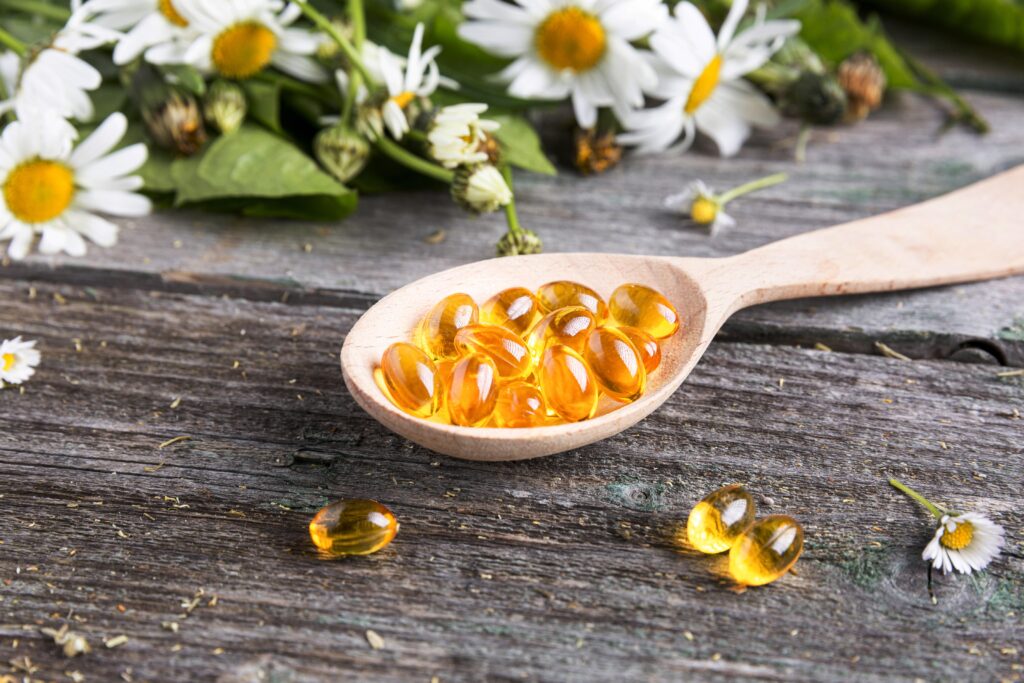
Vitamin E: The Antioxidant Powerhouse For Your Health
Vitamin E is a fat-soluble nutrient that plays a vital role in maintaining overall health. Known primarily for its antioxidant properties, vitamin E helps protect cells from oxidative damage, supports the immune system, and contributes to healthy skin, eyes, and cardiovascular function. Despite its importance, many people do not get enough vitamin E from their diets, making it crucial to understand its benefits, sources, and how to ensure adequate intake.
Peanex Tablet is a nutritional supplement designed to support overall health by addressing specific vitamin and mineral deficiencies. It is commonly used to enhance immunity, promote bone health, and improve skin and hair conditions.
What Is Vitamin E?
Vitamin E is not a single compound but a group of eight related nutrients called tocopherols and tocotrienols. Among these, alpha-tocopherol is the most biologically active form in humans and is primarily responsible for vitamin E’s health benefits. Being fat-soluble, vitamin E is stored in the body’s fatty tissues and liver, which allows it to maintain levels over time.
The primary role of vitamin E in the body is its antioxidant function. Antioxidants neutralize free radicals—unstable molecules that can damage cells and contribute to aging, inflammation, and chronic diseases. By combating oxidative stress, vitamin E helps protect vital tissues and organs throughout the body.
Health Benefits of Vitamin E
Vitamin E supports multiple aspects of health, from immune function to skin care. Here’s a detailed look at its key benefits:
1. Powerful Antioxidant Protection
Vitamin E protects cells from oxidative stress caused by free radicals. Free radicals are generated by normal metabolism, environmental toxins, pollution, and UV radiation. Over time, excess oxidative stress can damage cells, contribute to chronic conditions, and accelerate aging. Vitamin E helps stabilize these molecules, reducing the risk of cellular damage.
2. Supports Heart Health
Vitamin E may contribute to cardiovascular health by preventing the oxidation of LDL cholesterol, a major factor in plaque formation in arteries. Some studies suggest that adequate vitamin E intake may reduce the risk of heart disease, though it is most effective as part of a balanced diet rich in other antioxidants.
3. Boosts Immune Function
Vitamin E plays a critical role in maintaining a healthy immune system. It enhances the activity of immune cells, helping the body fight infections and recover more effectively. This is particularly important for older adults, whose immune function may naturally decline with age.
4. Promotes Healthy Skin
Vitamin E is widely recognized for its skin benefits. It helps protect the skin from UV damage, supports wound healing, and may reduce the appearance of scars and fine lines. Many skincare products include vitamin E for its moisturizing and antioxidant properties, which help maintain smooth and youthful-looking skin.
5. Supports Eye Health
Oxidative stress is a key factor in age-related eye conditions such as macular degeneration and cataracts. Vitamin E, combined with other antioxidants like vitamin C and beta-carotene, may help slow the progression of these conditions and protect overall eye health.
6. May Aid Cognitive Function
Research suggests that antioxidants like vitamin E can support brain health by protecting neurons from oxidative damage. Some studies indicate that vitamin E supplementation may slow cognitive decline in older adults, although results are mixed, and it should not replace other evidence-based approaches to brain health.
7. Hormonal and Reproductive Health
Vitamin E plays a role in hormone regulation and reproductive health. In men, it supports sperm quality and overall fertility, while in women, it may help regulate menstrual cycles and support healthy ovulation. Its antioxidant properties also protect reproductive cells from oxidative stress.
Sources of Vitamin E
Vitamin E is found naturally in a variety of foods. Fat-rich foods are particularly good sources since vitamin E is fat-soluble. Key sources include:
- Nuts and seeds: Almonds, sunflower seeds, hazelnuts
- Vegetable oils: Sunflower oil, safflower oil, wheat germ oil
- Green leafy vegetables: Spinach, broccoli, kale
- Fortified foods: Breakfast cereals and margarine
- Fish: Salmon, rainbow trout, and other fatty fish
Incorporating these foods into your diet regularly can help maintain adequate vitamin E levels and support overall health.
Recommended Daily Intake
The recommended daily allowance (RDA) for vitamin E varies by age and life stage:
- Adults: 15 mg (22.4 IU)
- Pregnant women: 15 mg (22.4 IU)
- Breastfeeding women: 19 mg (28.5 IU)
Excessive vitamin E intake, particularly through supplements, can be harmful and may increase the risk of bleeding or interact with certain medications. It’s important to follow recommended guidelines and consult a healthcare professional before starting supplementation.
Signs of Vitamin E Deficiency
Vitamin E deficiency is rare in healthy adults but can occur in individuals with certain medical conditions affecting fat absorption, such as cystic fibrosis, Crohn’s disease, or liver disorders. Symptoms of deficiency may include:
- Muscle weakness or fatigue
- Vision problems
- Impaired immune response
- Neurological issues like poor coordination or numbness
Early detection and dietary adjustments can help prevent long-term complications.
Tips for Maximizing Vitamin E Intake
- Eat a variety of nuts, seeds, and oils to ensure a consistent supply.
- Combine with healthy fats to enhance absorption, since vitamin E is fat-soluble.
- Limit processed foods, which can displace nutrient-rich options.
- Consider supplements only if dietary intake is insufficient, and always under professional guidance.
The Bottom Line
Vitamin E is a powerful antioxidant that supports immunity, skin health, cardiovascular function, and overall vitality. By including vitamin E-rich foods in your diet and maintaining a healthy lifestyle, you can protect your cells, reduce oxidative stress, and promote long-term wellness. While supplementation may be beneficial in certain cases, the most effective approach is a balanced diet that naturally supplies this essential nutrient.
Incorporating vitamin E into daily life is not just about preventing deficiencies—it’s about optimizing your health and supporting your body’s natural defenses. From protecting your heart to maintaining youthful skin, this antioxidant powerhouse plays a vital role in keeping you strong, resilient, and healthy.
